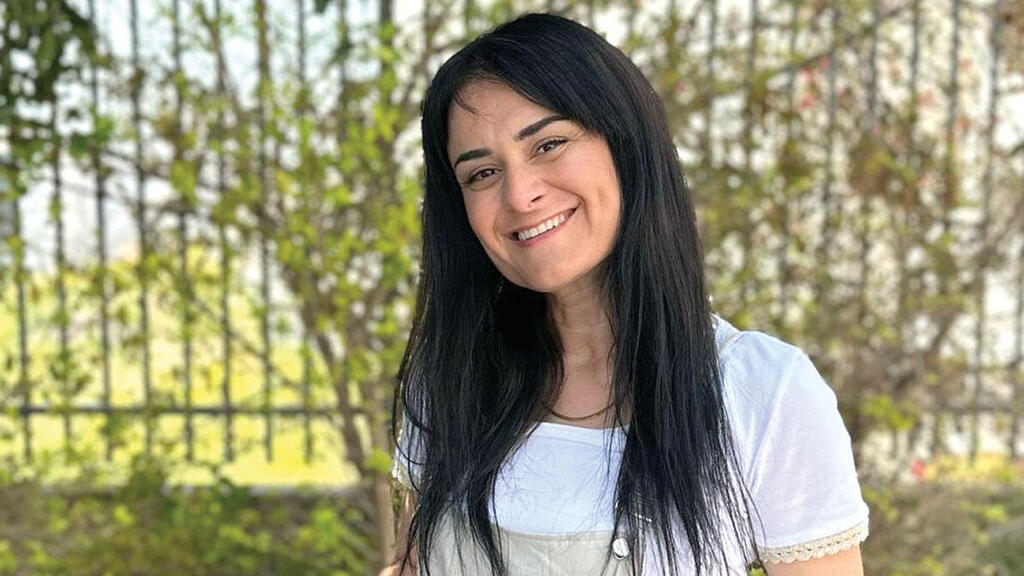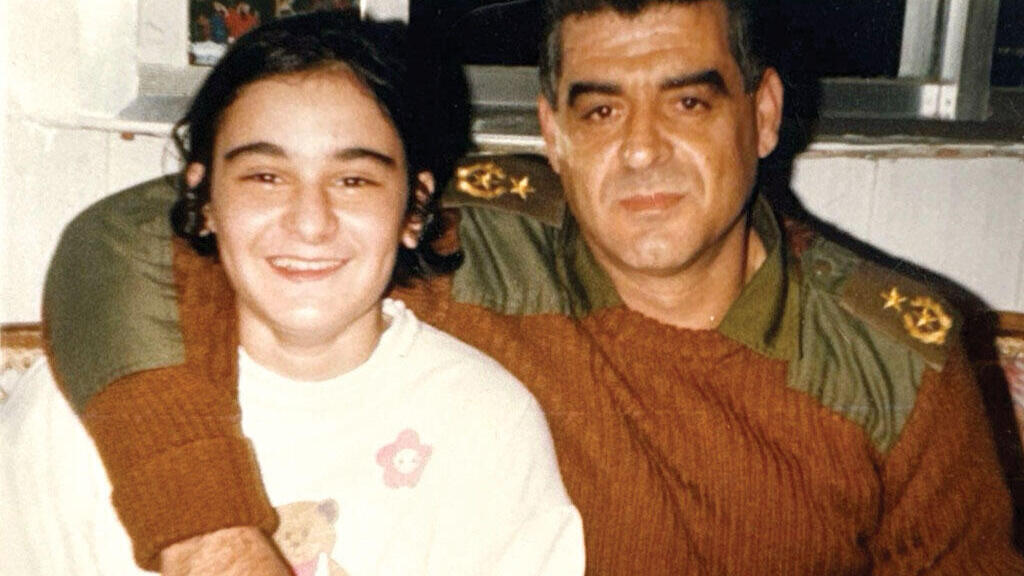Dr. Safaa Khanjar, 40, a teacher from the northern Israeli town of Ma'alot-Tarshiha, was recently named an outstanding educator by the Education Ministry.
Today, she teaches Arabic and leads the personal development and social involvement program at the Darca Druze High School for Science and Leadership in the Druze town of Yarka. But her path there began in war-torn southern Lebanon—where she fled as a teenager, carrying only a baby sister and a bag of family photos.
Khanjar was born in Hasbaya, a picturesque Druze town in southern Lebanon, where the Hasbani River flows. She is the eldest child of Nevo Abu Rafa, a senior commander in the South Lebanon Army (SLA), the Israeli-backed militia that fought against Hezbollah. “Because of his position,” she recalled, “we had an armored car and anyone entering our home had to show an ID.”
As a child, Khanjar frequently visited Israel for parties and summer camps. Beirut was off-limits due to the presence of Syrian forces who recognized her family name. At the time, Syrian-backed militias were known to kidnap SLA children to pressure their parents into cutting ties with Israel. “I wasn’t allowed to walk alone but sometimes I’d sneak out,” she said.
At age 11, she was abducted while trying to visit a cousin. “He picked me up and ran with me on his shoulder,” she recalled. “I fought him off—stuck my fingers in his eyes, scratched his face—he dropped me and I ran home.”
Her father grabbed his weapon and went searching for the attacker. “My mother prayed he wouldn’t find him. I didn’t understand why then, but now I do—it could’ve ended in disaster.”
Everything changed in 2000, when the IDF withdrew from southern Lebanon. That night, her father happened to be in an Israeli hospital visiting a friend. “There were rockets and explosions all night,” she recalled. The next morning, news came that a rocket had hit her school. “I was thrilled—no school! I woke my siblings and said, ‘Let’s drink maté and play.’”
But within hours, her father returned and told the family they had to flee. “I saw a bag in my room with family photos. I don’t know why, but I grabbed it.” She also picked up her seven-month-old sister. “My mother fainted, my father carried her and we ran to the car.” She was 14 at the time.
In Israel, Khanjar found herself without a home, friends or knowledge of Hebrew. She cried alone at night to hide her sadness from her parents. “To Jews, I was an Arab; to Arabs, I was a collaborator’s child; and the Druze knew I was different.”
She was bullied at school—students ripped up her books—and she sank into depression. “I’d draw graves in my notebook. I didn’t want to live.” She asked her father daily when they’d return to Lebanon. “He kept saying, ‘soon,’ until I realized we weren’t going back.”
Get the Ynetnews app on your smartphone: Google Play: https://bit.ly/4eJ37pE | Apple App Store: https://bit.ly/3ZL7iNv
She was sent to school at Kibbutz Ein HaMifratz with other SLA children and excelled academically—completing advanced studies in physics, math and English, failing only in her Bible studies.
A university prep program opened the door to higher education, where she initially refused to study Hebrew. “I asked to study Arabic, French and English—anything but Hebrew. And I got in.”
During her undergraduate studies in Arabic literature, Khanjar volunteered with pediatric cancer patients at Rambam Health Care Campus in Haifa. In lieu of military service—Druze women weren’t drafted—she was awarded a Student Authority prize, which she says helped her feel “valuable.”
She later met and married Saif Khanjar, a Druze Israeli who served in the IDF Combat Engineering Corps during the 2006 Second Lebanon War. Her father initially opposed the marriage, hoping she might still return to Lebanon—or move to the U.S. To stay close to Saif, she kept studying, eventually earning a master’s and a PhD in Arabic. Her 2018 dissertation focused on Lebanese dialects. “I wanted to preserve my identity.”
Today, Dr. Khanjar feels at home in the Yarka school where she teaches. “Students in pain open up to me. I had no one at 14, so now I try to be there for them.” She shares her story to inspire resilience. “I allow myself to cry in front of them. I want them to see we can grow even from hardship.”
Her recent national education award was dedicated to former hostage Romi Gonen, a name she chose not to elaborate on. Her husband still wears his military pin. When their children asked what it meant, Khanjar used it as a teaching moment: “I told them there are good and bad people in Lebanon too. They live between worlds—they know they’re Israeli Druze and that their grandfather is Lebanese.”
When her son said he wanted to become an Israeli Air Force pilot, she replied, “You’ll be a pilot. And if you have to, you’ll fight in Lebanon.”
“My homeland threw me out,” she said. “And this country adopted me.” Khanjar still dreams of Hasbaya—the food, the streets, the jacket she left behind. “The absurd thing is that I live just an hour away,” she said. “I dream of the day the border opens.”
“For us to live in peace, Jews must know Arabic,” she concluded. “We can’t live in a place where I understand you but you don’t understand me. That’s how we become stronger.”




